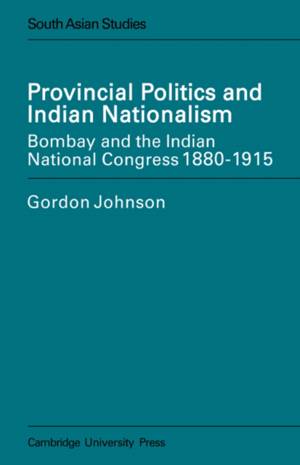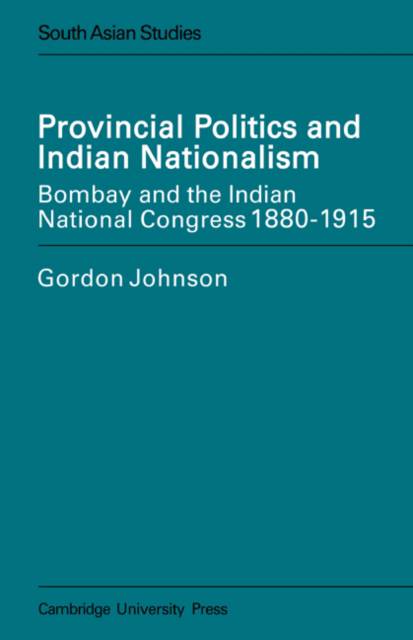
- Afhalen na 1 uur in een winkel met voorraad
- Gratis thuislevering in België vanaf € 30
- Ruim aanbod met 7 miljoen producten
- Afhalen na 1 uur in een winkel met voorraad
- Gratis thuislevering in België vanaf € 30
- Ruim aanbod met 7 miljoen producten
Zoeken
Provincial Politics and Indian Nationalism
Bombay and the Indian National Congress 1880-1915
Gordon Johnson, Eric Ed Johnson
€ 61,95
+ 123 punten
Omschrijving
This is a study of the Indian National Congress, the first political association to approach the government of India at an all-India level. The Congress became the most important national party in twentieth century India, and the whole history of the freedom movement is closely bound up with its fortunes. National politics, however, were influenced by regional and local affairs. In the early twentieth century the Indian Congress was split between the 'Moderates' and the 'Extremists'. Dr Johnson argues that this division was closely related to existing rivalries between politicians in the provinces, and that provincial interests determined their national point of view. Because the early Congress depended so much for its regular organisation on men from Bombay, party lines in western India were particularly important in determining the course of the struggles between the parties in the National Congress. The unpublished letters and diaries of the protagonists in these disputes have enabled Dr Johnson to examine this theme in detail. This is the first book to stress the need for study of regional and local politics as an integral part of the history of the Congress. Its revelation of the complex connections between parochial, provincial and all India politics adds a new dimension to our understanding of nationalism in South Asia.
Specificaties
Betrokkenen
- Auteur(s):
- Uitgeverij:
Inhoud
- Aantal bladzijden:
- 224
- Taal:
- Engels
- Reeks:
- Reeksnummer:
- nr. 14
Eigenschappen
- Productcode (EAN):
- 9780521619653
- Verschijningsdatum:
- 4/08/2005
- Uitvoering:
- Paperback
- Formaat:
- Trade paperback (VS)
- Afmetingen:
- 140 mm x 216 mm
- Gewicht:
- 290 g

Alleen bij Standaard Boekhandel
+ 123 punten op je klantenkaart van Standaard Boekhandel
Beoordelingen
We publiceren alleen reviews die voldoen aan de voorwaarden voor reviews. Bekijk onze voorwaarden voor reviews.











